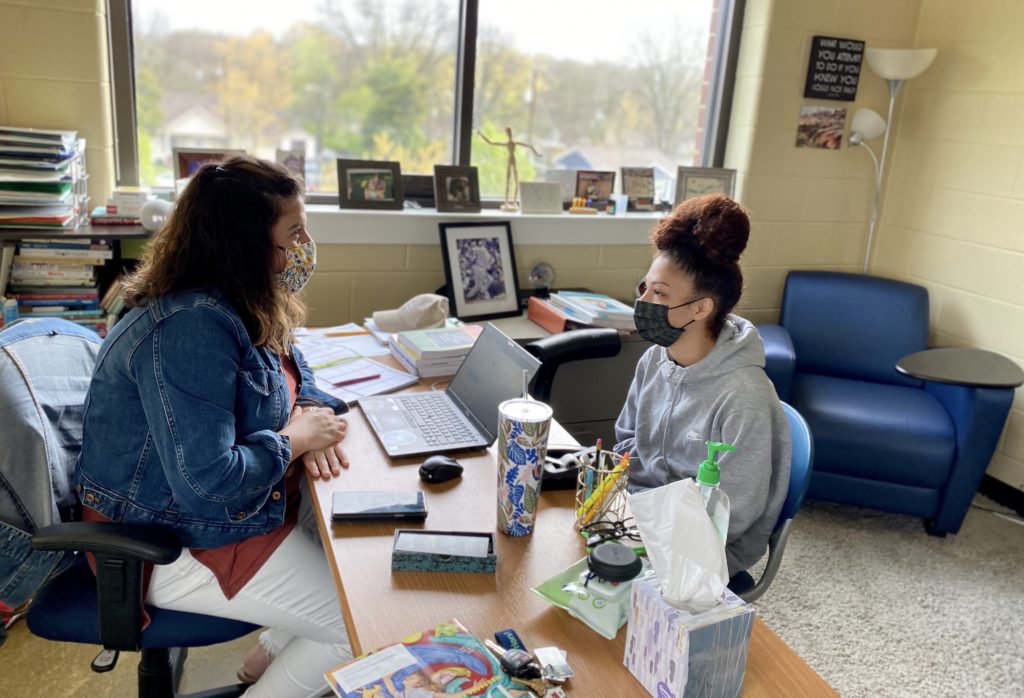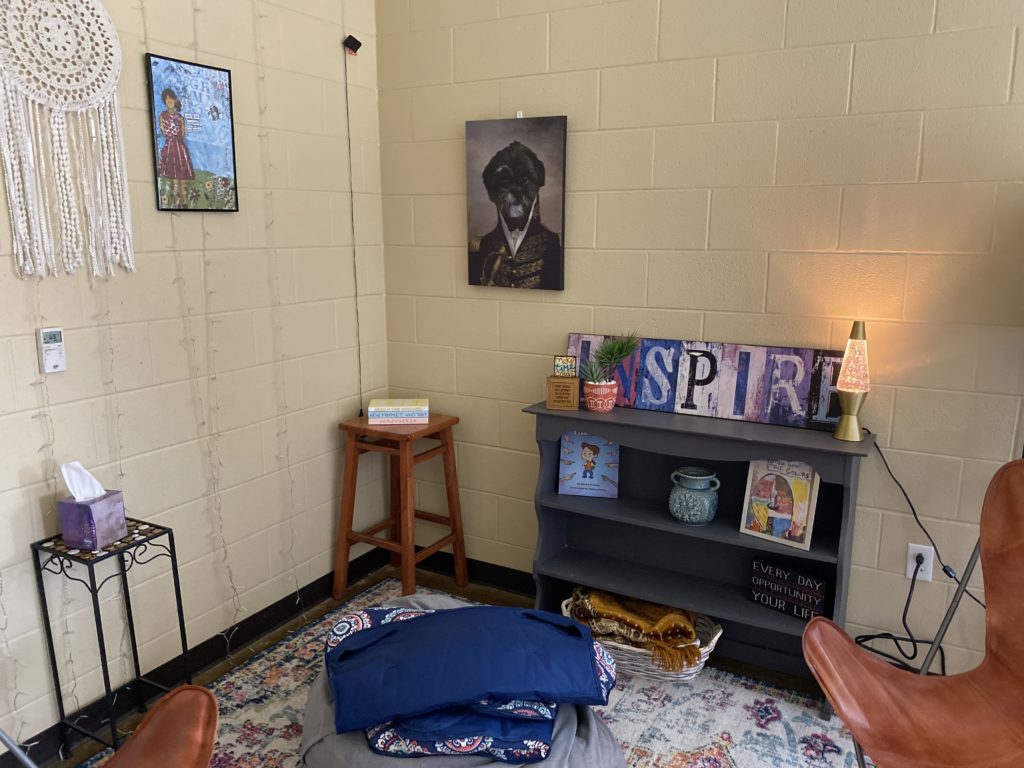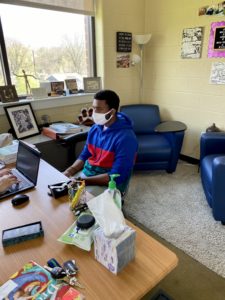
Adoncia Joyner’s stint learning from home wasn’t the most fulfilling experience.
So when KIPP Collegiate High School in East Nashville announced it would be welcoming kids back to classrooms in March, student support teams started working to make sure they had a successful transition back to normalcy. Charter school network KIPP Nashville was among the first to announce they’d be kicking off the school year virtually.
Joyner, who is an 11th grader at KIPP, is among a small group of students who embraced the return after being out of the building for more than a year. Only about 30% came back to in-person classes.
She’s now working with her school counselor to get her grades up.
“When I was virtual, I didn’t join any classes,” Joyner says. “I didn’t want to get out of the bed.”
Part of the reason, she says, was being overwhelmed with stress. She dealt with it by sleeping a lot. It also didn’t help that she lives in a jam-packed household.
“My aunt and her family lives with me, so it’s a lot of us in the house. I don’t ever have space of my own,” Joyner says. “My cousin stays in my room so I never have my room to myself. I don’t ever get any peace and quiet.”
Joyner is one of nearly 470 students assigned to KIPP high school counselor Marie Papini.

Marie Papini’s heavily decorated counseling office has a homey feeling with natural lighting.
Papini acts as a liaison between students and teachers. She also monitors students’ personal needs and intervenes when kids are falling behind academically. Her case load is focused on those with the most needs.
She’s been working with Joyner since her freshman year.
It took months to build a trusting relationship, which required face-to-face bonding when getting to know each other. That strategy has been impossible to do for most of the school year.
“I will say that having students back in the building has been really helpful,” Papini says. “As far being able to easily identify students that might need extra support that didn’t need it before.”
Providing nonacademic support to students
Virtual learning has made it challenging for schools to connect with students about their academic and emotional needs during the pandemic. So KIPP has had to take extra steps to reach students during the pandemic, like coordinating meetings with families and conducting home visits. The school also has a virtual counseling option.
These efforts have been successful, and school leaders say almost no students have been “completely unreachable.”
Still, there’s no guarantee that kids will fully engage virtually. The students who do may also hold back their feelings when navigating stressful situations. So a counselor may not have a full picture of what’s going on.
“We’ve had students who had sick family members,” Papini says. “We’ve had students that have continued to experience loss while they’ve been remote.”
It’s also unclear, she says, what the full needs are for all students because the majority of KIPP kids are still learning virtually. Papini’s found that it’s much easier to connect with students like De’Montay Fletcher when they’re in person.
 Damon Mitchell WPLN News
Damon Mitchell WPLN NewsKIPP student De’Montay Fletcher sits across from his school counselor during a morning check-in.
Fletcher, who’s a senior, is seen as a star student at KIPP.
He didn’t have academic issues during his virtual learning period. Fletcher actually wanted to stay home to support his family during a difficult time. But his mom forced him to come back to the school building.
Fletcher’s been meeting with Papini to talk through some of his personal issues. He says his sister may have colon cancer. He also says that she’s unable to work because of the pain.
He’s since stepped in to provide physical and small financial support. This is on top juggling five Advanced Placement classes.
“She doesn’t have internet over her house, so I’ve been using my phone as a hotspot. But she also doesn’t have power in her house,” Fletcher tells Papini in a counseling session. “So I’ve been doing DoorDash for her to try to get more money so she can pay her bills.”
At times, Fletcher struggles to keep up with assignments because of this. Papini coordinates plans with his teachers to help him stay on track. Sometimes that means asking them to exempt him from some school work.
“It feels really good because usually I’m not the type of person that would go somewhere [and ask for help],” Fletcher says. “I would try to stick it out and do everything I have to do.”
Fletcher says he appreciates that KIPP’s support staff is going out of their way to help him. The high school is also training teachers on counseling techniques to provide extra support to students, including for the 70% of students who are still at home.
One focus, says school leaders, is developing supports for the group of students who are now having a hard time with in-person classes after struggling virtually.

